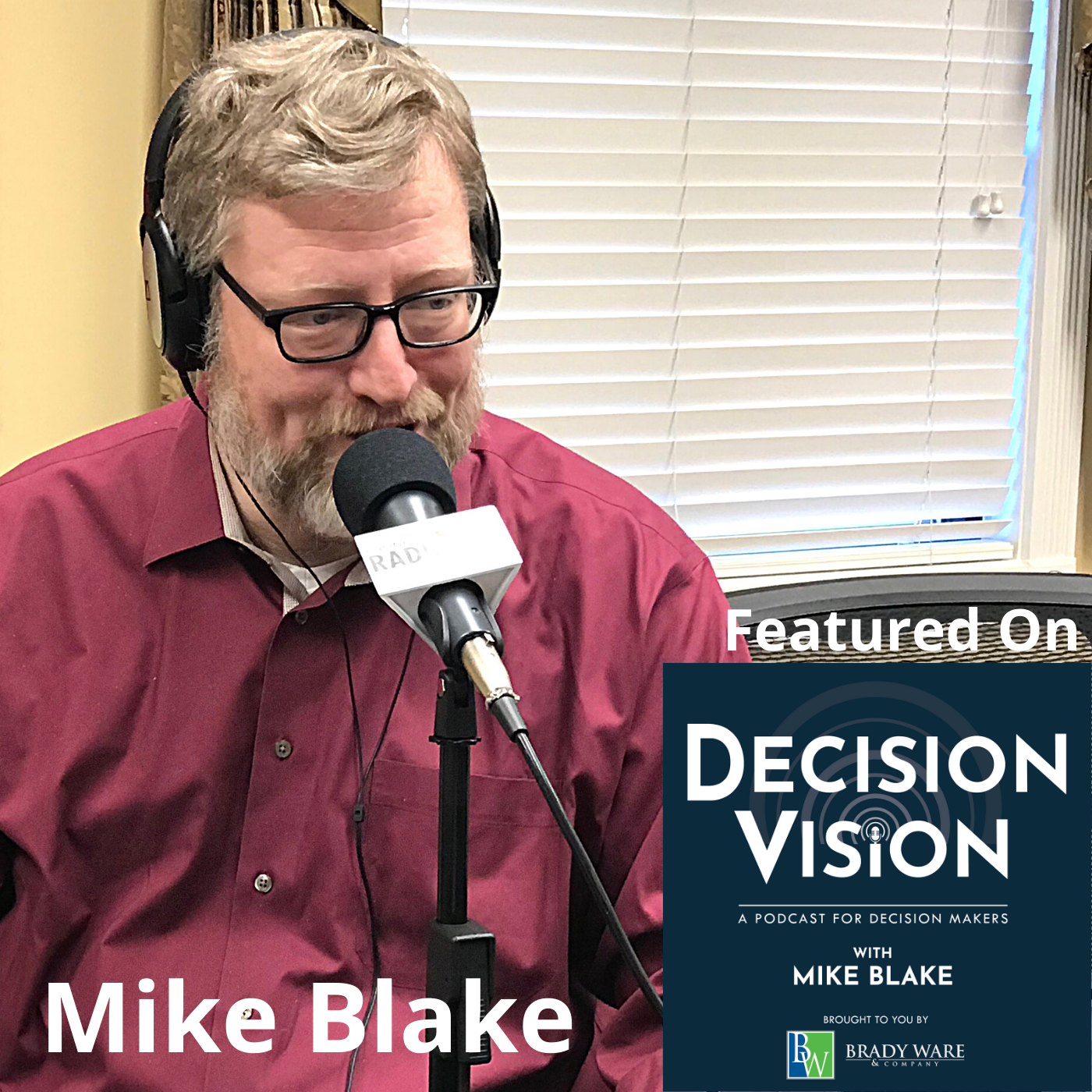

The Backstory of Luring Employees Back to Work, with Mike Blake, Brady Ware & Company
Mike Blake: [00:00:00] Are we going to lure people back to work? Are we going to force them back to work? So, the topic of the day now is, people are not coming back to the workforce. And that’s the chart that I have from the St. Louis Federal Reserve on Unemployment Level and Job Openings. It shows that the number of job openings exceeds the number of unemployed people in the United States. Why are people not taking them?
Mike Blake: [00:00:30] Well, before I go directly and answer that question, this chart is really important, and if you look at no other chart and look at this one – and it also is from the St. Louis Federal Reserve and it’s the Labor Force Participation Rate. And the labor force participation rate means the percentage of adult Americans who are working, or available to work, want to work, or in the labor force – you’ll notice that the American labor force has been declining since 2000, particularly since, say, late 2008, 2009. And it recovered a bit, I think a statistical noise. Really dropped during the COVID pandemic, and has come back a little bit.
Mike Blake: [00:01:22] And I say that because it provides some useful framework around understanding the nature of unemployment and the nature of people pursuing jobs. And that is, that we have been running up against a shortage of workers for two decades now. We haven’t noticed it, for whatever reason, because we’ve had enough people, more or less, to take jobs. But that gravy train may have come to an end, but we’ll see. Like I said, economics is a slow science.
Mike Blake: [00:01:55] And, frankly, I don’t know the story yet. I don’t know whether unemployment benefits are too high and people are kicking back on the extra 300 bucks a month. You know, I cannot imagine that myself. I can’t imagine $1,200 being meaningful enough to me that I would simply stop working and be on welfare. But I acknowledge I’m not everybody. I just don’t know a portion of the population that is.
Mike Blake: [00:02:23] And I do think people have awakened, and changed priorities, and are willing to give up income for a different lifestyle. I think, you know, there’s nothing like 600,000 people dying over the course of 18 months to remind people how short and precious life is. I do think that people have discovered they’d rather live on less and would rather have more of what they expect their lives to be from a personal perspective and spiritual perspective.
Mike Blake, Brady Ware & Company

Michael Blake is the host of the Decision Vision podcast series and a Director of Brady Ware & Company. Mike specializes in the valuation of intellectual property-driven firms, such as software firms, aerospace firms, and professional services firms, most frequently in the capacity as a transaction advisor, helping clients obtain great outcomes from complex transaction opportunities. He is also a specialist in the appraisal of intellectual properties as stand-alone assets, such as software, trade secrets, and patents.
Mike has been a full-time business appraiser for 13 years with public accounting firms, boutique business appraisal firms, and an owner of his own firm. Prior to that, he spent 8 years in venture capital and investment banking, including transactions in the U.S., Israel, Russia, Ukraine, and Belarus.
LinkedIn | Facebook | Twitter | Instagram
You can find the complete Decision Vision interview here.
The “One Minute Interview” series is produced by John Ray and in the North Fulton studio of Business RadioX® in Alpharetta. You can find the full archive of shows by following this link.
Renasant Bank has humble roots, starting in 1904 as a $100,000 bank in a Lee County, Mississippi, bakery. Since then, Renasant has grown to become one of the Southeast’s strongest financial institutions with over $13 billion in assets and more than 190 banking, lending, wealth management and financial services offices in Mississippi, Alabama, Tennessee, Georgia and Florida. All of Renasant’s success stems from each of their banker’s commitment to investing in their communities as a way of better understanding the people they serve. At Renasant Bank, they understand you because they work and live alongside you every day.















